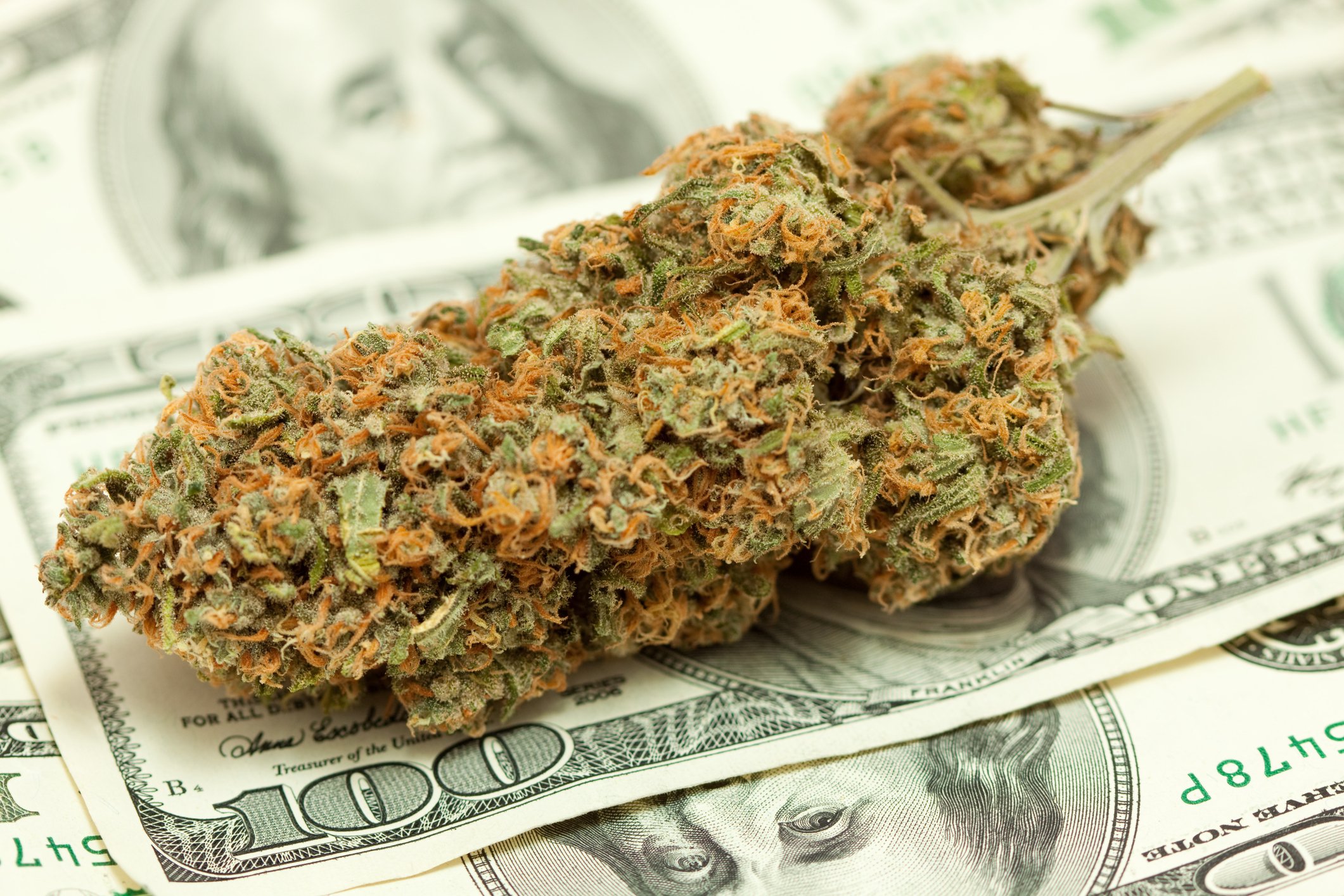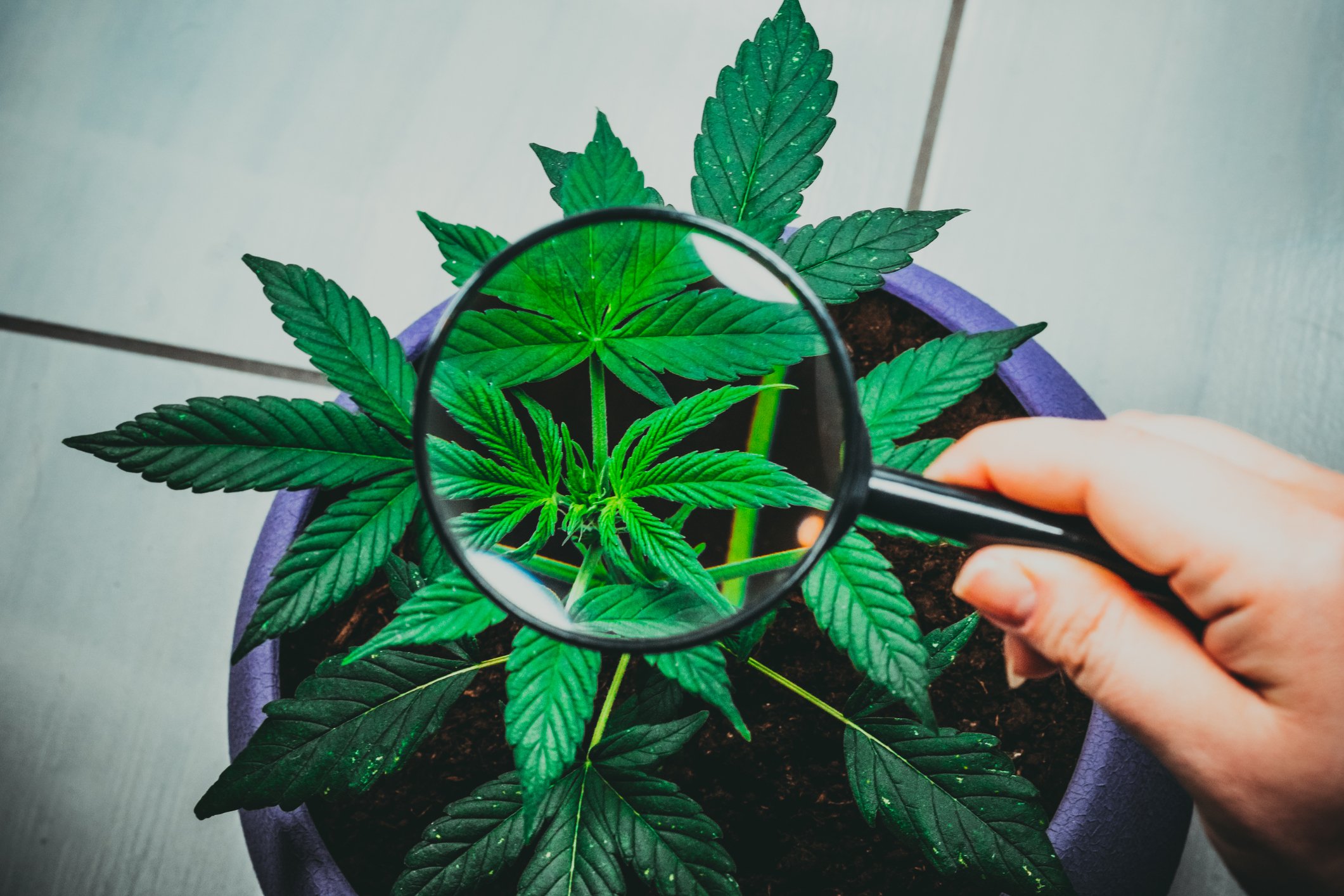Few if any industries have been growing as quickly as legal marijuana in North America. Over the past couple of years, nearly all pot stocks have seen their valuations soar by a triple- or quadruple-digit percentage, making for some very happy investors.
At the heart of this bullishness is the expectation that Canada will legalize recreational weed this summer, becoming the first developed country in the world to do so. In the process, it'll be adding $5 billion or more in annual sales to its domestic pot industry.

Image source: Getty Images.
Also, we've witnessed a discernible shift in the way the public views cannabis, at least in the United States. Spanning five national polls over the trailing year, each and every survey has produced support for legalization of at least 59%. Gallup, perhaps the most well-known pollster, pegged support at 64% in October 2017, which is up from just 25% in 1995, the year before California became the first state to legalize medicinal marijuana for compassionate-use patients.
Yet in spite of this momentum, drug developer Insys Therapeutics (INSY +0.00%) has been an absolute train wreck. Insys offers a broad spectrum of therapies in its product portfolio and pipeline, but it gets its association with "marijuana stocks" through its Food and Drug Administration (FDA) approval of Syndros, a liquid dronabinol solution -- i.e., a synthetic form of tetrahydrocannabinol (THC), the psychoactive component of the cannabis plant -- designed to treat chemotherapy-induced nausea and vomiting, as well as anorexia associated with AIDS. It also has other cannabidiol-based products in development in its pipeline.
Talk about a subpar quarter
A little more than a week ago, Insys reported its first-quarter results, and as has been customary in recent quarters, the company missed Wall Street's top- and bottom-line expectations. Insys wound up generating $23.9 million in net revenue, which was down by 33% on a year-over-year basis, and nearly $2 million below Wall Street's consensus. Meanwhile, the adjusted loss of $0.19 per share more than doubled its year-ago adjusted loss of $0.09 per share, and it turned out to be $0.03 per share more than analysts had been expecting.

Image source: Getty Images.
The big issue for Insys -- or should I say, the one investors seem to be laser-focused on -- is the company's tumbling sales of sublingual breakthrough cancer pain medication Subsys. At one time, Subsys was generating well over $300 million in annual sales. At the rate sales have been plunging in recent quarters, Subsys might be lucky to stabilize between $60 million and $75 million in annual sales when this year-over-year decline abates.
Subsys' troubles tie into an ongoing legal case that saw a half-dozen Insys executives arrested and charged with bribing doctors to prescribe Subsys in late 2016. In particular, it's been alleged that up to 80% of Subsys prescriptions were being written for off-label use. Additionally, in order to make the prescriptions look legit to insurers, select doctors who were prescribing Subsys were allegedly hired by Insys for speaking engagements, even if they never gave those talks. If these allegations prove true, Subsys could lose roughly 80% of its sales from its peak, and the company would have to deal with the blowback of losing the trust of physicians and consumers.
It's also worth noting that Insys blamed some of its first-quarter weakness on product returns, as some medication on wholesalers' shelves hit its expiration date.
You might be focusing on the wrong issues
While Subsys remains Insys' front-and-center problem, I'd contend that its falling sales aren't the company's most immediate worry. Instead, two other issues -- the sputtering of Syndros, and the legal ramifications the company is facing -- could prove much worse.

Image source: Getty Images.
Arguably the biggest disappointment in the company's first-quarter report was the $637,000 in total sales registered by Syndros. Understandably, the drug was only launched in July of last year, but it's extremely rare for such a new, first-of-its-kind, therapeutic to have flat demand from the sequential quarter. In fact, the $1.44 million generated in five-plus months last year is a quicker extrapolated annual sales pace than the $637,000 the company reported in Q1 2018. Insys does note that it's actively in discussion with insurers to grant coverage to Syndros, but more than two quarters following its launch in a highly competitive space, it's looking as if Syndros may not come close to living up to its hype.
Just as scary is the murkiness surrounding the company's legal issues. In late October, Insys announced that it had set aside $150 million as a potential settlement with the Justice Department regarding its actions with Subsys. In that press release, Insys notes that this "represents our best estimate of the minimum liability exposure we expect to pay over five years." What investors should understand is that this estimate could go way above and beyond what the company has set aside. As noted, this settlement won't come due immediately, but anything significantly beyond $150 million could materially impact the long-term survival of Insys if Subsys' sales continue to fall, Syndros fails to gain traction, and the company keeps burning money via widening quarterly losses and growing research and development expenditures.
Insys' one saving grace
Perhaps the only factor that's buoyed Insys Therapeutics' stock price in recent months is the company's robust pipeline. Management has long believed that Insys can bring one new drug to market each year, and it certainly looks capable of doing so, based on what it has in the works.

Image source: Getty Images.
In December, the FDA accepted the company's new drug application for its novel buprenorphine sublingual spray for the management of moderate to severe acute pain. A PDUFA decision date has been set for July 28, 2018. Though this spray would enter another highly competitive space, it would be yet another feather in Insys' cap as it looks to diversify its portfolio away from the troublesome Subsys.
Also in the works is a phase 3 cannabidiol (CBD) oral solution -- CBD is the non-psychoactive component of the cannabis plant that's best known for its medical benefits -- being tested in infantile spasms, as well as a midstage study of its oral CBD solution in pediatric patients with Prader-Willi syndrome. In short, there are no shortage of opportunities for Insys to swing its bat, so to speak.
The question is: Will it connect and hit a home run on any of its pipeline products? At the moment, Syndros is looking like a major whiff, and Subsys' best days are long gone. If Insys can continue to deliver a new drug to market each year, it may have a shot at providing solid returns to investors over the next five to 10 years. What remains to be seen is if Insys has enough capital to last the next five to 10 years. Only time, and the legal system, will tell the tale.






